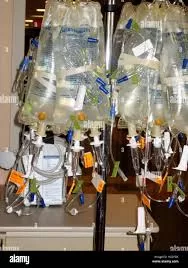In a troubling turn of events, Ringer’s Lactate (RL) solution manufactured by Paschim Banga Pharmaceuticals was distributed to government hospitals in India, despite earlier warnings about its potential risks to lactating mothers. The issue, which first came to light in March last year, was discussed at a state-level meeting chaired by Health Secretary Narayan Swaroop Nigam, but concerns remained unaddressed, leading to tragic consequences.
Early Warnings Dismissed
During the March 2024 meeting, a senior official from a South Bengal medical college voiced concerns over the quality of RL produced by Paschim Banga Pharmaceuticals. Health Secretary Nigam acknowledged these concerns and assured that the matter would be investigated. Subsequent testing of RL samples reportedly found them to be within acceptable standards, leading to no official restrictions on their use.
However, the Karnataka government had already banned RL manufactured by the same North Dinajpur-based company, citing safety concerns. This stark contradiction raised questions about the efficacy of Bengal’s safety measures.
Tragic Outcomes
Despite verbal advisories issued by the Bengal health department in December 2024 against using RL and other solutions from the company, the products continued to be supplied to hospitals. Alarmingly, these supplies included batches delivered just ten days before a fatal incident at Midnapore Medical College and Hospital.
At the hospital, Mamani Ruidas, a new mother, tragically lost her life, while three other ailing mothers were rushed to SSKM Hospital in Calcutta for emergency care. The incident has intensified scrutiny over the decision to allow continued use of the potentially faulty product.
Government Action
Following a raid on the Paschim Banga Pharmaceuticals factory in December, the Bengal government ordered the company to halt production. Despite this decisive step, critics argue that the action came too late, as lives were already lost and others endangered.
Health Secretary Nigam has maintained that the initial tests of RL samples found them acceptable, but this defense has done little to placate grieving families and public health advocates. Calls for an overhaul of the testing and approval processes for medical supplies have grown louder in the wake of these events.
Broader Implications
The tragedy highlights systemic issues in the oversight and regulation of medical supplies in India. The delayed response to red flags raised over Paschim Banga Pharmaceuticals has underscored the need for more stringent safety protocols and accountability in the healthcare supply chain.
As investigations continue, the incident serves as a grim reminder of the human cost of administrative lapses and the critical importance of prioritizing patient safety over procedural complacency. Families of victims and the wider public are demanding answers and assurance that such oversights will not occur again.
The Bengal government now faces the challenge of rebuilding trust in its healthcare system while ensuring that future warnings are heeded before they lead to preventable tragedies.











